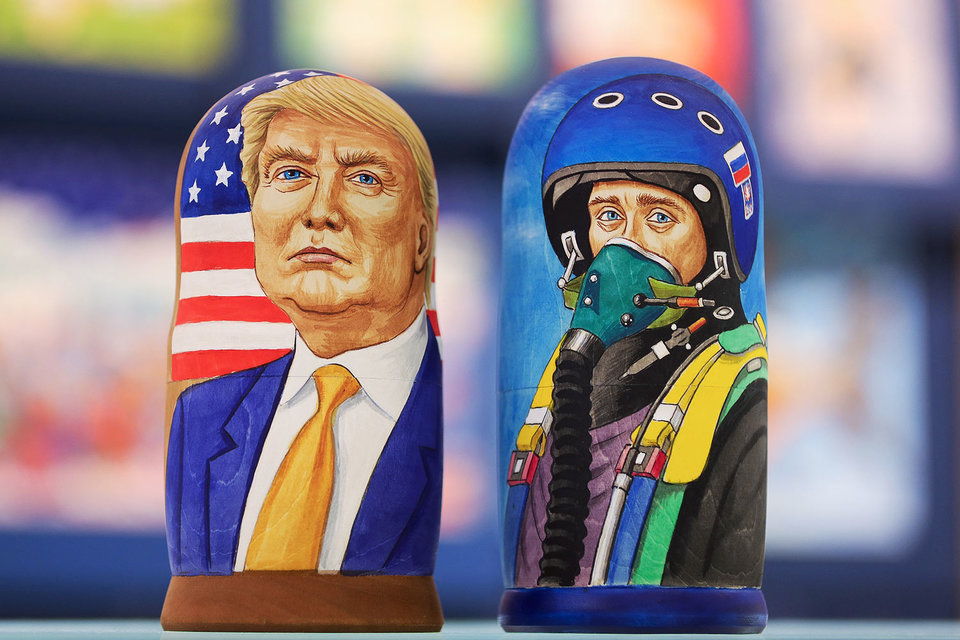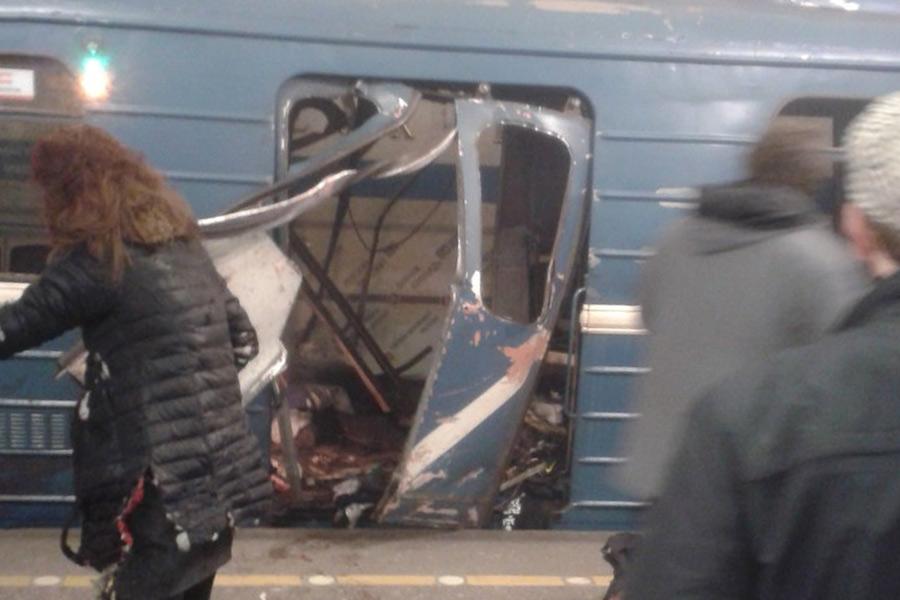What happened:
- On January 15, 2020, the President of Russia Vladimir Putin addressed the Federal Assembly and proposed to amend the Russian Constitution, redistributing political power to the Parliament and the State Council, which currently has no real authority; Putin would likely seek to head the State Council in 2024, where he will be able to keep an eye on presidential and ministerial successors.
- The State Duma will have the right to approve the appointment of the Prime Minister and members of the Government;
- The President of Russia will not be allowed to be elected more than twice;
- The Federation Council will be allowed to remove judges of the Constitutional and Supreme Courts of Russia and control the appointment of heads of law enforcement agencies;
- Putin initially said the changes will be approved by a popular vote, but his spokesman Dmitry Peskov denied the possibility of a referendum;
- The law on changes to the main law of Russia will be ready by the end of the summer;
- A few hours after Putin’s message, Russian Prime Minister Dmitry Medvedev announced that the Russian government had resigned
- Medvedev underlined that the decision on the next cabinet would be made by the president;
- Putin announced his intention to introduce a new post of Deputy Chairman of the Security Council of Russia and to appoint Dmitry Medvedev to that post;
- In the afternoon of January 15, Vladimir Putin submitted Mikhail Mishustin, Chairman of the Federal Tax Service as candidate for the post of prime minister (Kremlin press service).

Who is Mishustin?

Mikhail Mishustin is a technocrat, Chairman of the Federal Tax Service. He has been in charge of the Russian tax department since 2010.
Prior to that, he worked in investment business and held various positions in the Federal Tax Service and the Government of Russia. In particular, Mishustin was the Deputy Minister of Taxation and Dues under three Ministers. Mikhail Mishustin is 53 years old.
Mishustin plays hockey in the Night Hockey League and is a member of the Supervisory Board of HC CSKA Moscow. In 2019, he and the team were awarded the Gagarin Cup – a prize awarded to the winners of the Continental Hockey League playoffs. Putin is also a great fan and supporter of hockey.
Experts comment on the resignation of the Russian government and Vladimir Putin’s proposed changes:
Russian political scientist Kirill Rogov:

- Dmitry Medvedev refused to speak at the Gaidar Forum, and now we know why. Of course, the position Putin has offered him is not at all appealing. This is a serious downgrade for Medvedev. Perhaps it means that Nikolai Patrushev will soon leave the post of Secretary of the Security Council and Medvedev will take his place? There have been lots of rumours about Patrushev’s departure, so maybe that’s what this reshuffle means. Of course, the main question is who will be the next prime minister. It’s very difficult to say anything yet.
Leader of the People’s Freedom Party, former Russian Prime Minister Mikhail Kasianov:
- Putin has announced a new format for forming a government. The current format doesn’t change much, but the appointment of each minister should be discussions in the State Duma. Therefore, in order for people to have a positive impression of Putin’s message, namely that something important is happening in our country - I’ll call them “imitation changes”, Putin must act in this way. And that’s what he’s doing…
In fact, the main result of this message is that Putin isn’t going anywhere, and he’s hiding this fact behind different measures that are allegedly strengthening the role of the Duma and the Federation Council.
The idea that things are changing for the better, that there will be more discussion about the composition of the government, is being hammered into the heads of the Russian people.
I believe that even now, even though such an amendment has not been adopted in the constitution, nothing will stop the measures announced by Putin, namely discussing the appointment of new ministers in the Duma. I think this is just a ploy to distract our citizens from Putin’s main message, namely: “I, Putin, am not going anywhere; I’m here to stay, but this will require further strengthening of the power vertical.”
- Many people believed that Medvedev, having served this four-year interim term from 2008 to 2012, had become a “sacred cow” that had proved his allegiance to Putin, that he’d never go anywhere, that he’d always play second fiddle. He has now been offered a decorative post. Does this mean Medvedev’s death as a politician, at least at the television level?

- I think that his new post, deputy secretary of the Security Council is not a very promising or remarkable position. Nevertheless, I don’t think that Medvedev will stay in this position. He’ll be appointed to a good post in one of the state corporations or in the judicial system. Today, he’s just sitting pretty.
Today, Putin is explaining to the country that Russia is undergoing “global changes”. I put that in quotation marks, because it’s an imitation of change, and so now, political scientists and the media will focus on the bad appointment of some ministers, how they are discussed in the Duma, and this whole nonsense will last about a month.
- Why is this happening today? So that Russians get positive vibes from Putin’s message?
- Exactly. Because our people love to hear some kind of news, background info, events, something different, etc. In fact, the events aren’t significant, but the appointment of ministers will be a distraction from Putin’s main signal to the elite: “The elites aren’t going anywhere, and you mustn’t worry. Moreover, I’ll strengthen your alleged powers and I will be in control of who gets into that elite.”
By “elite” I mean not only the Kremlin administration, but the entire Duma and the Federation Council, and all the appointments Putin makes or represents.
He has told these people that “you will always be in power, just behave yourself and do what’s required!”
President of the St. Petersburg Politics Foundation Mikhail Vinogradov:
- Such an intensification of public political life in a country where nothing’s been happening for almost 20 years is unexpected. In one day, we’ve seen events that don’t happen in five years.
Apparently, they’re planning to build a new structure for the future transition of power. It’s not yet very clear whether it will be definitive or not, as it’s only a light sketch of what might be.

Apparently, they want to accelerate the construction of this new structure, but no one knows if any final decisions are being made now, or whether everyone’s waiting for candidates to “propose” themselves for this new structure.
Putin’s promise that he may resign as president in 2024 has caused a strong apocalyptic commotion, and now, we see the start of a powerful and unprecedented politicization of the elite.
Yes, it’s possible to “reverse” the situation; it’s possible to maintain ambiguity about Dmitry Medvedev’s future, but, seeing that during the past 5-6 years, internal life and internal politics have been on the periphery, the fact that Russia’s top officials have suddenly swung towards more internal issues and the restoration, albeit temporary, of domestic politics, comes as a great surprise.
- Why did this happen now, on the day when Putin pronounced his official message? After all, this message is usually very formal and boring…
- The message legalized the theme of transition, legalized the theme of criticism of the super-presidential republic. Until recently, all criticism was seen as “fomenting unrest”, but now, it’s become mainstream and trendy.
Medvedev’s resignation shows that it’s not just a sketch of what’s to come, but that further measures have been thoughtfully drawn up.
However, it’s still very difficult to understand what the actual strategy is, or whether it’s just impromptu and improvisation.
Russian political scientist Fyodor Krasheninnikov:
- The transition has begun, and it will move very, very quickly, as we have seen these past few days, when in one day there were different messages promising social reform, and constitutional reform, then the resignation of the government, and finally Medvedev’s resignation.
I think this frantic pace will continue, and Putin will take further steps.

The goal is straightforward - to confuse society, move quickly and resolutely so that no one understands what’s happening or what should be done. I believe that they’ll rewrite the constitution now, without any referendum, and rapidly reformat the power structure. It will end up with Putin forming a constitution and a power vertical that will enable him to rule forever and be surrounded by some loyal slaves, who will strengthen his position on all sides of the government. That’s what he wants and that’s what started today.
This was expected, of course, but we didn’t expect it to happen so lightning fast!
But, how else could it be? They had to act quickly; otherwise, people might have had more time to think and react, to find an antidote for this madness.
In 2018, Putin was re-elected to a new six-year term. Obviously, Putin wants to stay in power beyond 2024 and seems to have come up with an institutional structure to achieve that goal.





